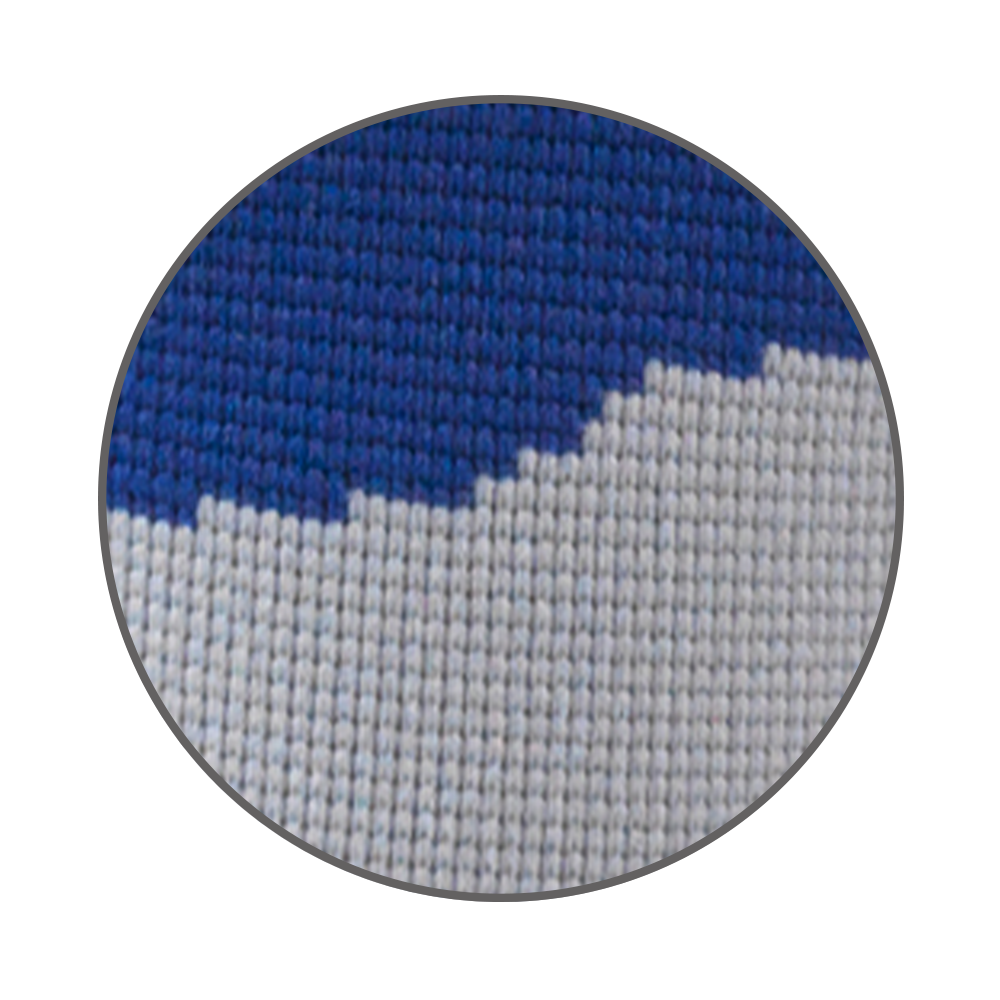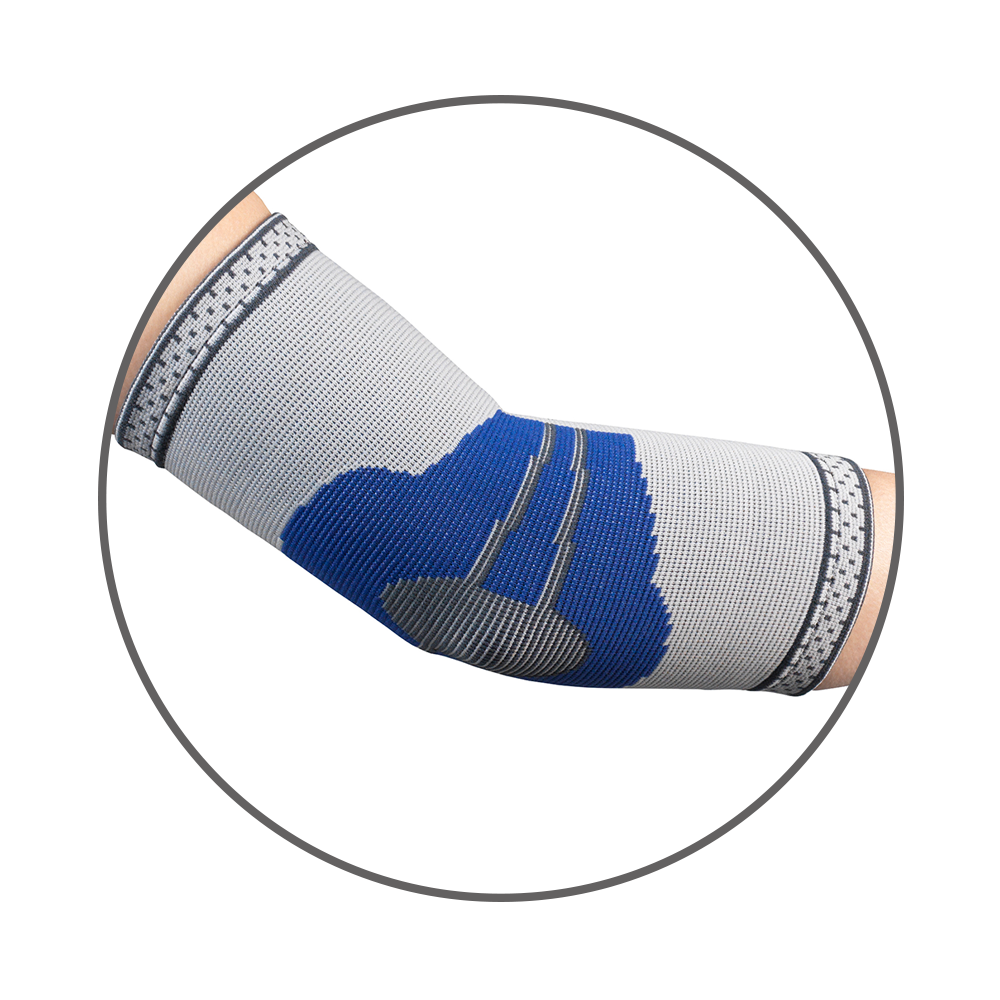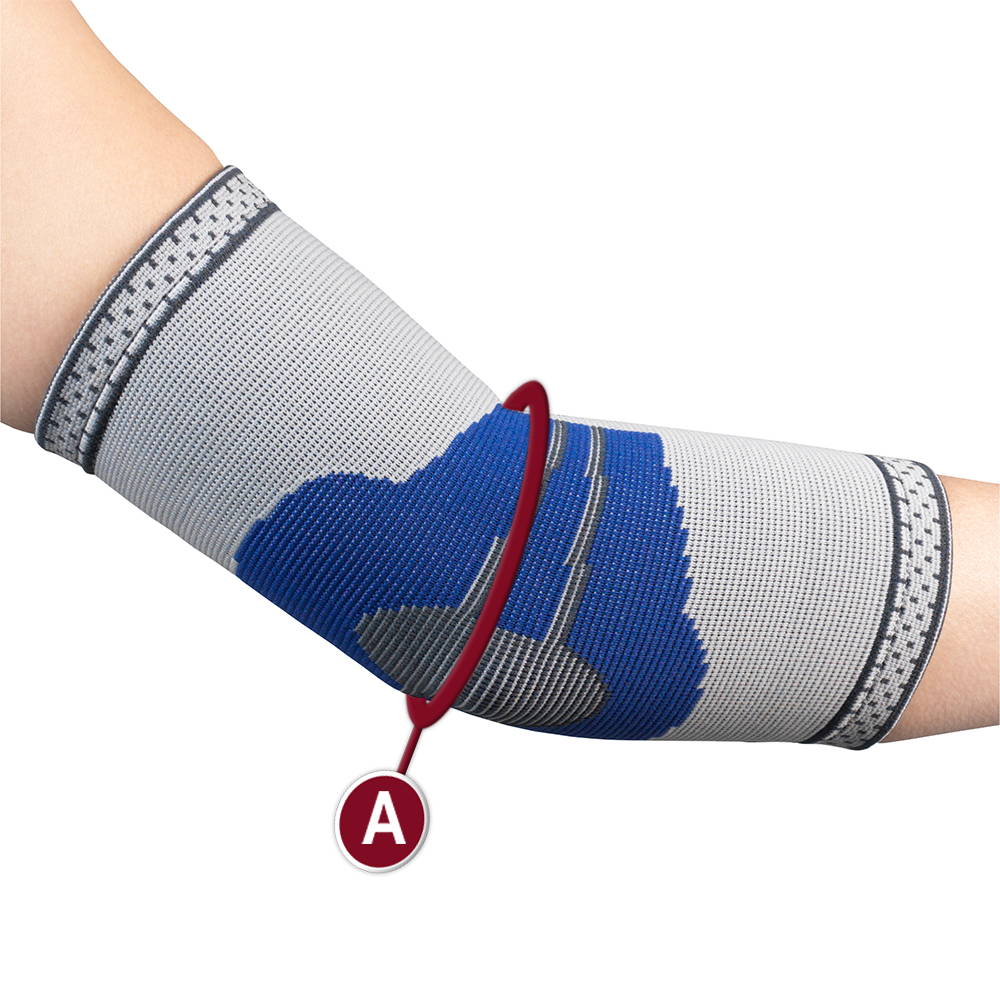2419 / PULLOVER ELASTIC ELBOW SUPPORT
The OTC 2419 pullover elastic elbow support is a medium duty, controlled stretch product that allows full range of elbow motion. It provides compression where it is needed most over the soft tissues of the joint without binding or cutting around the edges. It provides a comfortable uniform compression over the affected area while helping to permit continued activity and preventing re-injury.
PRODUCT FEATURES
• Lightweight, controlled four-way stretch elastic offers effective compressive support to entire elbow area
Indications
Tendonitis, carpal tunnel syndrome, lateral epicondylitis (tennis elbow), repetitive stress injuries, cumulative trauma disorders
Product Features

Specialty fabric
Durable, high quality elastic absorbs perspiration for all day wearing comfort. Natural white color.

anatomically designed
Exerts compression evenly over the soft tissues of the elbow, fitting comfortably around the surface anatomy. Encircles the elbow like a bandage but without the bulk.
How to Measure for and Apply Elbow Support
| SIZE | MEASURE AROUND THE BEND OF THE ELBOW |
|---|---|
| X-SMALL | 8” – 9” (20.3 - 22.8 CM) |
| SMALL | 9” – 10.25” (22.8 - 26 CM) |
| MEDIUM | 10.25” – 11.5” (26 - 29.2 CM) |
| LARGE | 11.5” – 12.5” (29.2 - 31.7 CM) |
| X-LARGE | 12.5” – 13.75” (31.7 - 35 CM) |
Measuring Instructions
A. Measure around the bend of the elbow
Application Instructions
1. Pull the support up and over the arm until centered over the elbow.
2. The support should fit snug but not so tight that it deeply depresses the skin.

Medical Applications
Review the accompanying chart to determine the product that best suits your needs. On the left, you will find a variety of injuries that OTC products are specifically designed to treat and prevent. On the top, you will find the product numbers of all OTC Elbow Products. If a red box is present where the column and row intersect, your injury or condition is treated/prevented by the associated product.
| 0301 | 0302 | 2089 | 2419 | 2421 | 2427 | 2428 | 2429 | 2439 | |
|---|---|---|---|---|---|---|---|---|---|
| Arthritis | |||||||||
| Bursitis | |||||||||
| Carpal Tunnel Syndrome (CTS) | |||||||||
| Cubital Tunnel Syndrome | |||||||||
| Cumulative Trauma Disorders | |||||||||
| Forearm Pain | |||||||||
| Lateral Epicondylitis (Tennis Elbow) | |||||||||
| Medial Epicondylitis (Golfer's Elbow) | |||||||||
| Mild Elbow Pain | |||||||||
| Mild Sprains, Strains | |||||||||
| Moderate Sprains, Strains | |||||||||
| Repetitive Stress Injury | |||||||||
| Tendonitis | |||||||||
| Ulnar Nerve Pressure |
Tendonitis
Tendonitis is a painful condition resulting from the swelling of the tendons in the forearm. Two of the most common forms of tendonitis that effect the elbow are Tennis Elbow and Golfer's Elbow.
The conditions shown below may not be treated by the product listed on this page. Please view the above Medical Applications Chart to determine what conditions this page's associated product treats.
Tennis Elbow
The most common injury to the elbow is that of lateral epicondylitis, or tennis elbow. Tennis elbow is an inflammation of the extensor muscles on the lateral epicondyle of the humerus. Tennis elbow usually develops from repetitive gripping activities such as grasping a tennis racquet, rake, crescent wrench or paintbrush. These activities put too much stress on tendons that eventually cause small tears in the tissue and thus tennis elbow.
Golfer's Elbow
One of the most common injuries to the elbow is that of medial epicondylitis, or golfer's elbow. Golfer's elbow is an inflammation of the extensor muscles on the medial epicondyle of the humerus. Golfers elbow usually develops from repetitive impact activities such as hitting a golf ball, pitching a baseball, chopping wood, or using of hand tools frequently. These activities put too much stress on tendons that eventually cause small tears in the tissue and thus golfers elbow.
The Anatomy of the Elbow
Outer elbow
A. Ulna Bone
B. Radius Bone
C. Medial Epicondyle
D. Humerus Bone
Inner elbow
A. Exterior Muscles
B. Ulna Bone
C. Lateral Epicondyle
D. Humerus Bone
